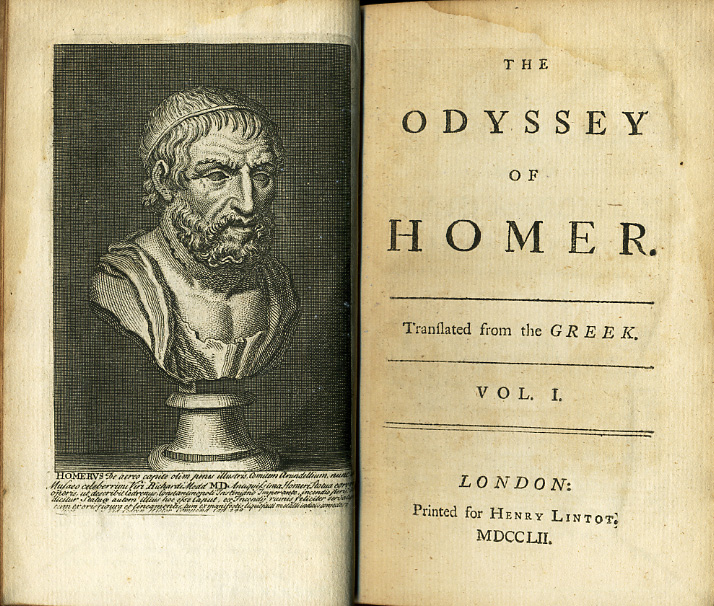 |
| Alexander's Pope's translation of "The Odyssey" (1752). Source: Wikimedia. |
 The Odyssey by Homer
The Odyssey by HomerMy rating: 5 of 5 stars
Generally, I accept my lot in life and I really do enjoy my fate. Amor Fati. Then I read books like this, where after pages of frustration I am shaking with rage and I want to don my armour and take my stand with Odysseus and slay that pack of pissweak suitors for behaving like hyaenas over my unprotected hearth. I have to stand and walk as I read, angry at my young self for wasting all those years being an idiot, angry at my lot in life for not making me a Rhodes scholar, enabling me to speak and read every language on earth, read every great book ever written, while waves of adrenalin course through my chest, my back and shoulders tensing with my hands shaking as I read furiously, my body lunges with each spear thrust, getting frustrated at being unable to read because of the shaking, and passion compounds passion and I read so fast I start stumbling over words and have to slow myself down. The book ends and I sit down. And then I get cranky at Hollywood for all its bullshit, cranky that the story was never told as it was written. Cranky that the Trojan horse gets bare mention yet it becomes the central story of every recreation since, and then cranky that I didn't know that's because it was Virgil's The Aeneid where the details came from. And as the coursing anger subsides, the Homeric epics give me a glimpse of real life, and real heroes. They suffer doubt and frustration and anguish and shame and lose their courage. They are not super heroes who can never lose and they are not in control of their destinies and the gods play their part and one's fate happens and it is only one's inward citadel that can never be broached if we won't allow it to be. Unless we accept a Trojan horse as a gift. Thank God for Homer, whoever he (or they) may have been.
View all my reviews